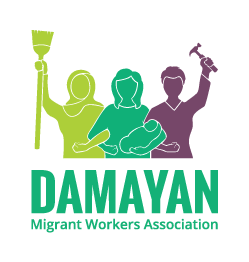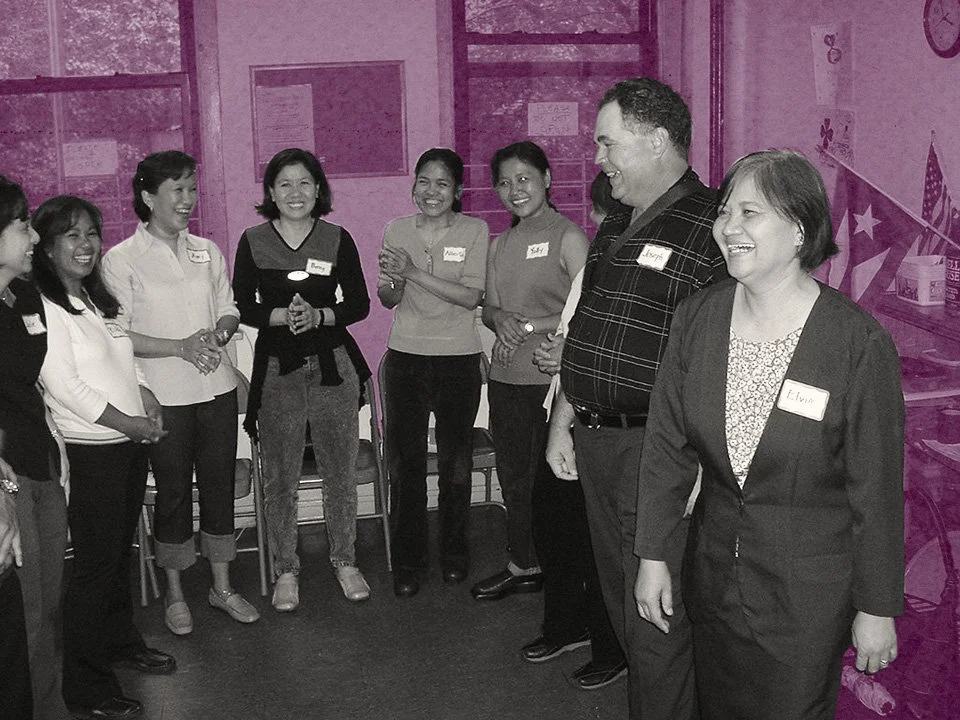
In the 1980s, larger numbers of women in the Philippines were forced to migrate due to poverty and unemployment, with many ending up in the US. Employed mainly in the unregulated domestic work industry, the labor violations they experienced were compounded by their undocumented status. To uphold their rights and dignity, domestic workers spoke out and organized.

Damayan was founded in 2002 by five Filipina domestic workers to empower low-wage workers to fight for their labor, health, gender, and immigrant rights. They aimed to build grassroots leadership, eliminate labor trafficking, fight labor fraud and wage theft, and demand fair labor standards to achieve economic and social justice.
“Damayan was actually founded in 2002… We were political activists. We were anti-war activists. Very strong in alliance work with anti-war organizations here, both Filipinos and non-Filipinos. But organizing migrant domestic workers starts with being grounded in the community, you can’t begin organizing vulnerable undocumented and trafficked workers by talking about US imperialism, you have to know the concrete problems and needs of workers and you begin the organizing by discussing with them about their problems, about the causes and the solutions. If you really want to empower workers to create genuine change, you have to connect to the workers, organize and mobilize them. That was a big challenge.”
"(I was with) the folks (Filipino and non Filipino political activists) that were leading the charge with the evolving Damayan when they (Damayan workers) would attend marches and rallies. If I was not caught up in my fledgling community planning work obligations, I would join them at the rallies at the Philippine Consulate, I would go on people's marches, anti-war marches. And I would really have to say that as much as I learned that silence is complicity in the Philippines, I learned that mobilizing and having a voice is important (in New York)."



